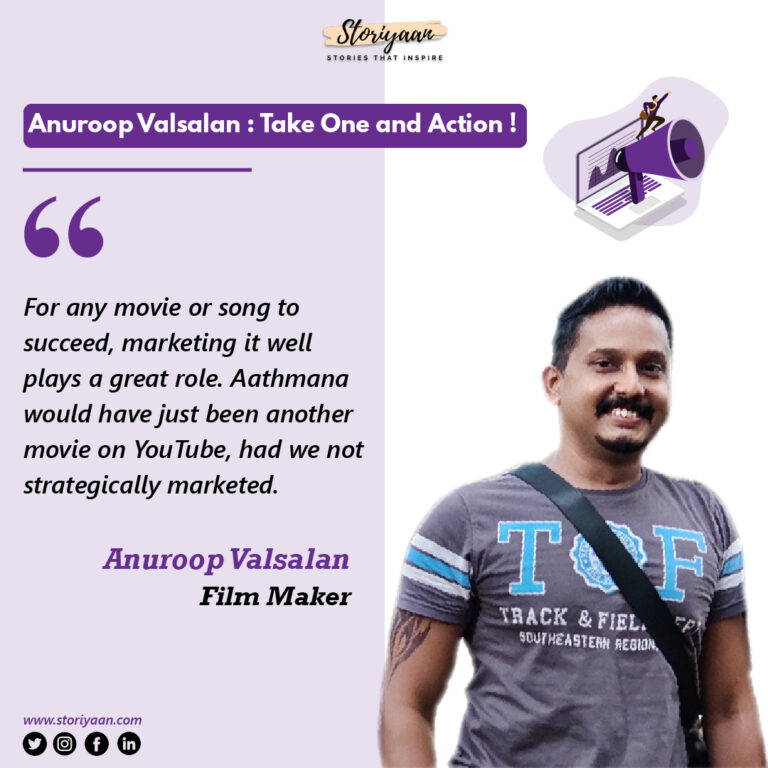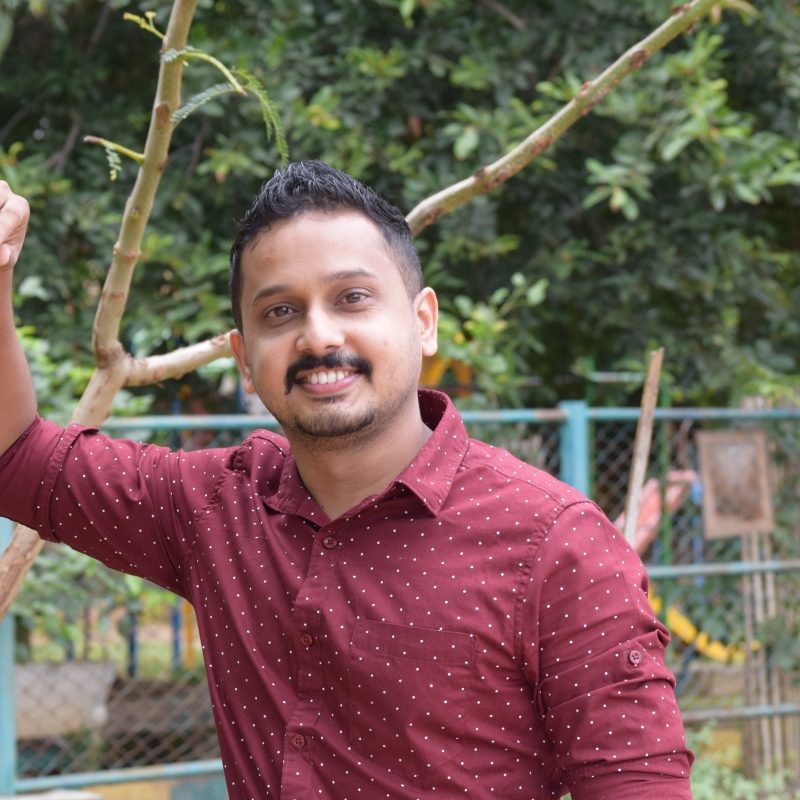No one can forget the time the theatres were shut down, movies began to be released on OTT platforms, and our joy of munching popcorn and sipping drinks came to a halt. Amidst all this, Anuroop Valsalan’s success story was being given birth to. The movie “Aathmana” was shot during the lockdown and managed to win several accolades such as Honorary recognition for best actor in the Toronto Independent Film Festival of Cift, and being a finalist in Hollywood International Golden Age Festival at New York, among many others.
He currently works as a manager of the technology team, in a firm in Bangalore, and has also been a part of a few short films and music albums. Being a movie enthusiast, his main aim is to get into the mainstream and make more meaningful and artistic movies. In this interview with Storiyaan, the graduate from NIIT shares his professional insights into the film industry and experiences as a filmmaker.

ANUROOP VALSALAN- TAKE ONE AND ACTION!
Interview
Questions and answers
How did you come up with the storyline of ‘Aathmana’ and what instigated you to turn it into a movie?
The movie will be screened in Canada after being selected by Vancouver International South Asian Film Festival. How do you feel about reaching this milestone?
What significance do Film-Festivals hold for you and what makes them memorable?
What were some of the major challenges that you had to come across during the shooting of the film?
What ignited your dream to be a filmmaker?
What are some of the genres that you consider to be your niche and how do you bring in diversification within similar genres?
Having looked into the nooks and corners of this industry, what would be some of the things that you would like to change about it if it were in your hands?
Being the recipient of several prestigious awards and recognition both at national and international levels come with their own pros and cons. How have your achievements acted as a source of motivation?
As a filmmaker, to which era in cinematography do you most relate to and why?
Apart from cinemas taking to OTT platforms what have been some of the changes that you have noticed in the film-making industry since the pandemic?
Quick 5
1.One overrated movie – ‘Marakkar’ in Malayalam. It bagged the National award for the best feature film! I don’t think it deserves it. I definitely agree with other categories of national awards that it has bagged, but not for the ‘Best feature film.
2. One director whose work you deeply admire – Nadine Labaki for her movie Capernaum. It is a masterpiece.
3. One essential element for making a good script – It can’t be just one. It is the perfect combination of theme, character arc, and plot which are very essential for a strong script
4. One movie you recommend the Gen Z to watch – Capernaum
5. The worst impact of commercial movies on society – Few commercial movies add in a lot of unnecessary negativity and masala. Watching such movies tweaks the way certain people look at others.

